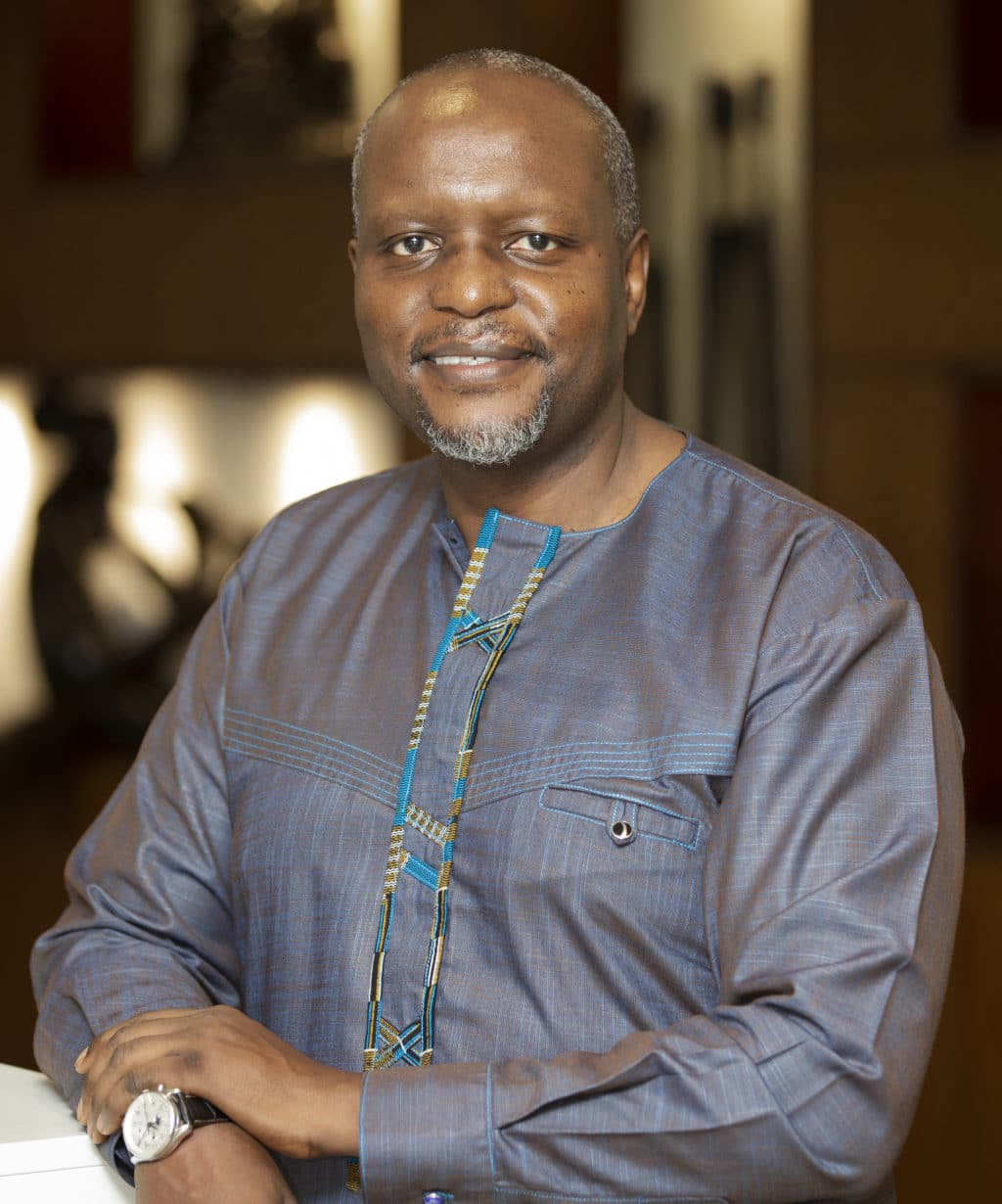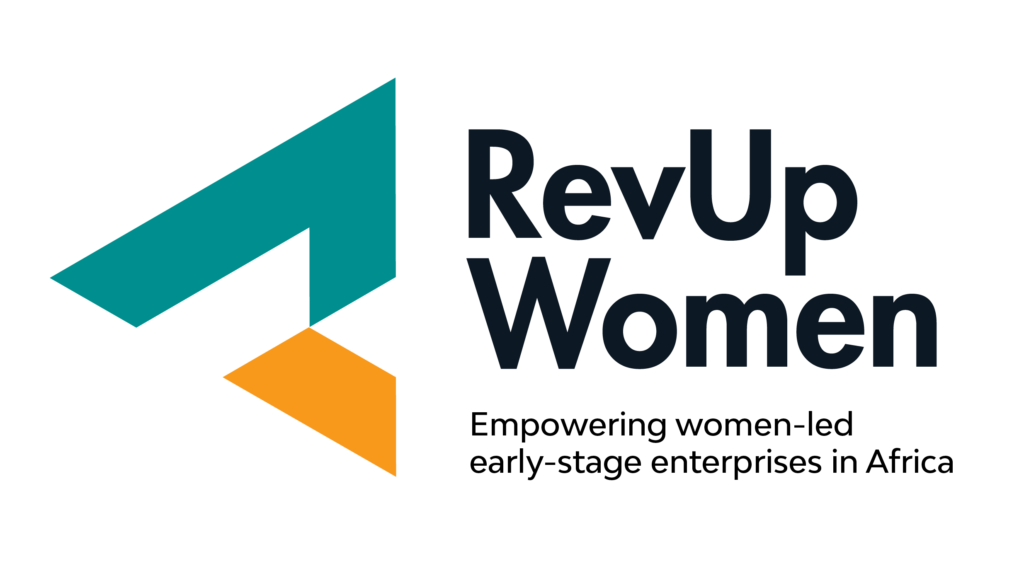Business & Money
Meet Kariuki Ngari: Standard Chartered Bank’s new CEO of Africa. What’s Next?
Kariuki Ngari’s nomination heralds a new chapter and an entire volume in the bank’s narrative of success in Africa. It signifies a renewed sense of purpose, a reaffirmation of values, and a shared commitment to shaping a brighter future for the continent’s economies and communities.

: The nomination speaks volumes about the bank’s commitment to its African operations and its strategic vision for growth on the continent.
: Kariuki’s vast experience and market insight make him a catalyst for growth. With his strategic vision, Standard Chartered can seize opportunities, expand, and provide tailored financial solutions
By Charles Wachira
In a significant move within the banking sector, Kariuki Ngari ascended to CEO Africa at Standard Chartered Bank on April 3, marking a pivotal moment in his illustrious career. As he steps into this new role, Ngari faces a landscape rife with challenges but brimming with opportunities. He is poised to leverage his expertise and track record to propel the bank’s growth trajectory across Africa.
Challenges and Opportunities:
Navigating Regulatory Complexity: One of Kariuki’s foremost challenges will be navigating the diverse regulatory environments across the African continent. With each country presenting unique regulations and compliance requirements, Ngari must adopt a nuanced approach to ensure Standard Chartered Bank’s operations remain compliant while driving growth.
Adapting to Market Dynamics: African markets are diverse and constantly changing. Rapid shifts in consumer preferences, technological advancements, and intense competition characterise them. Kariuki must stay agile and adaptive, seizing opportunities for innovation and market expansion while mitigating risks associated with changing market dynamics.
Fostering Financial Inclusion: Africa offers significant opportunities for financial inclusion, as a large portion of the population remains underserved by traditional banking services. Kariuki has the opportunity to drive initiatives that promote financial literacy, expand access to banking services, and foster inclusive economic growth across the continent.
Previous Achievements and Experience:
Before assuming the role of CEO of Africa, Kariuki served in various leadership positions within Standard Chartered Bank, demonstrating his exceptional leadership capabilities and strategic vision. Some of his notable achievements include:
Driving Digital Transformation: Kariuki played a pivotal role in driving Standard Chartered Bank’s digital transformation agenda, spearheading initiatives to enhance the bank’s digital capabilities and customer experience. Under his leadership, the bank successfully launched innovative digital banking solutions tailored to the African market, driving customer engagement and retention.
Expanding Market Presence: Kariuk has a proven track record of expanding Standard Chartered Bank’s market presence across Africa, identifying growth opportunities, and forging strategic partnerships to penetrate new markets and strengthen the bank’s foothold in existing ones.
Promoting Sustainable Finance: Kariuki is committed to promoting sustainable finance and responsible banking practices. He has championed initiatives focused on environmental, social, and governance (ESG) principles, integrating sustainability into the bank’s business strategy and operations.
Expectations in the New Role:
As CEO of Africa, stakeholders expect Kariuki to bring his wealth of experience, strategic acumen, and unwavering commitment to driving Standard Chartered Bank’s growth agenda in Africa. Key expectations include:
Strategic Vision: Kariuki will continue articulating a clear vision for Standard Chartered Bank’s African operations, leveraging market insights and industry trends to identify growth opportunities and drive sustainable value creation.
Innovation and Digitalization: Ngari will prioritise innovation and digitalisation, harnessing the power of technology to enhance the bank’s offerings, streamline operations, and deliver superior customer experiences.
Stakeholder Engagement: Ngari will intensely focus on stakeholder engagement, fostering relationships with clients, regulators, shareholders, and communities to ensure alignment with the bank’s objectives and values.
The nomination of Kariuki to the position of CEO of Standard Chartered Africa speaks volumes about the bank’s commitment to its African operations and its strategic vision for growth on the continent. Here are a few critical points that the nomination signifies:
Recognition of Talent: Standard Chartered Bank’s decision to appoint Kariuki Ngari as CEO of Africa reflects the bank’s recognition of his exceptional leadership qualities, strategic acumen, and track record of success within the organisation. It indicates that the bank values talent from within its ranks and is committed to nurturing and promoting internal talent to key leadership positions.
Focus on the African Market: By appointing a CEO specifically for the African region, Standard Chartered Bank underscores the importance of the African market in its global strategy. It signifies the bank’s commitment to unlocking the vast opportunities presented by the African continent and leveraging its potential for growth and expansion.
Continuity and Stability: Kariuki’s nomination brings continuity and stability to Standard Chartered Bank’s African operations. With his deep understanding of market dynamics, extensive experience within the organisation, and proven track record of success, Ngari is well-positioned to provide steady leadership and drive the bank’s growth agenda in Africa.
Emphasis on Local Leadership: The appointment of Kariuki, who is of Kenyan nationality, also highlights the importance of local leadership and expertise in driving success in the African market. It demonstrates Standard Chartered Bank’s commitment to fostering a diverse and inclusive leadership culture that reflects the communities and markets it serves.
Strategic Direction: Kariuki’s nomination signifies the bank’s strategic direction and priorities for its African operations. It suggests a focus on driving innovation, digital transformation, and sustainable growth in key markets across the continent, with Ngari leading the charge in executing the bank’s vision and objectives in Africa.
Kariuki’s appointment as CEO of Africa at Standard Chartered Bank marks a significant milestone in the institution’s journey towards consolidating its position as a premier financial institution on the African continent. With an unwavering focus on excellence, strategic foresight, and a proven track record of leadership, Kariuki brings a wealth of experience and expertise that positions him as a catalyst for transformative growth.
His elevation underscores the bank’s confidence in his abilities and its steadfast commitment to fostering homegrown talent and leveraging local expertise to drive success in key markets. Kariuki’s appointment represents more than just a change in leadership; it symbolises a new era of innovation, resilience, and adaptability in navigating the intricacies of the African financial landscape.
In the face of evolving market dynamics, regulatory complexities, and competitive pressures, Kariuki’s leadership will be instrumental in steering Standard Chartered Bank towards sustainable growth and value creation. His strategic vision, coupled with a deep understanding of the African market, will enable the bank to capitalise on emerging opportunities, expand its footprint, and deliver superior financial solutions tailored to the diverse needs of its customers.
Moreover, Kariuki’s appointment reinforces Standard Chartered Bank’s commitment to driving positive impact and fostering inclusive growth across the continent. Kariuki is poised to make a meaningful difference in millions of individuals and businesses across Africa by championing initiatives promoting financial inclusion, sustainability, and responsible banking practices.
In essence, Kariuki’s nomination heralds not just a new chapter but an entire volume in the bank’s narrative of success in Africa. It signifies a renewed sense of purpose, a reaffirmation of values, and a shared commitment to shaping a brighter future for the continent’s economies and communities. As he assumes the mantle of leadership, Ngari stands at the forefront of Standard Chartered Bank’s journey towards becoming the partner of choice for businesses, investors, and individuals alike, propelling Africa towards a future of prosperity and opportunity.
Keywords:Kariuki Ngari:Standard Chartered Bank:CEO Africa:Financial Inclusion:Digital Transformation
Business & Money
Empowering Women Entrepreneurs in Africa: RevUp Women Initiative
The RevUp Women Initiative is not just an enterprise development program; it’s a transformative movement empowering women entrepreneurs across Africa. By offering vital resources, mentorship, and funding, RevUp Women is building a dynamic community of female leaders who are driving positive change in their lives while significantly contributing to the economic growth of their nations.

RevUp Women Initiative boosts women-led businesses in Africa through training, mentorship, and funding. Join us in fostering economic growth and gender equality.
The RevUp Women Initiative is a transformative enterprise development program designed to accelerate early-stage, women-led businesses across Africa into profitable and sustainable ventures.
By fostering gender equality and inclusive economic growth, this initiative offers a comprehensive suite of services, including enterprise development training, mentorship, peer-to-peer learning, and access to finance.
Achievements and Impact
Since its inception, the RevUp Women Initiative has successfully trained 444 women entrepreneurs across ten cities in five African countries: Nigeria, Kenya, Cameroon, the Democratic Republic of the Congo (DRC), and South Africa.
This impactful program is funded by the Visa Foundation, emphasizing its commitment to fostering entrepreneurship among women in the continent.
Mentorship and Training Programs
At the heart of the RevUp Women Initiative is its robust mentorship program.
Through this program, women entrepreneurs gain access to invaluable support, enabling them to start and grow their businesses.
The initiative connects participants with experienced mentors who guide them through various challenges, offering insights and expertise tailored to their specific needs.
To enhance the impact of this mentorship, AfriLabs—a dynamic innovation-focused organization established in 2011—has developed a network of women leaders across the continent.
These leaders serve as volunteer mentors, providing guidance and support to women entrepreneurs. Mentors are paired with mentees based on their profiles and the specific needs of the entrepreneurs, ensuring a personalized approach to development.
Funding and Future Prospects
The RevUp Women Initiative aims to provide capacity-building training and mentoring to 500 women business owners during its pilot stage. As part of this effort, 10 women-owned businesses will receive grants of $10,000 each from the Visa Foundation to support their growth.
This funding is critical for helping women entrepreneurs overcome the unique challenges they face and stimulating job creation across the continent.
The initiative also promotes peer-to-peer learning, allowing participants to share experiences and strategies for success.
This collaborative environment enhances the growth potential of women-led businesses, contributing to the broader goal of economic empowerment.
AfriLabs: A Supportive Ecosystem
AfriLabs plays a pivotal role in the RevUp Women Initiative by establishing and nurturing innovation hubs across Africa.
These hubs serve as co-working spaces and training centers, providing comprehensive support in areas such as business management, legalities, and finance.
By fostering a community around these hubs, AfriLabs contributes significantly to cultivating innovators and entrepreneurs who can drive economic growth and social development throughout the continent.
Conclusion
The RevUp Women Initiative is more than just an enterprise development program; it is a movement aimed at empowering women entrepreneurs across Africa.
By providing essential resources, mentorship, and funding, RevUp Women is helping to build a vibrant community of female leaders who are not only transforming their own lives but also contributing to the economic prosperity of their countries.
As the initiative continues to grow, it remains committed to driving change and inspiring future generations of women entrepreneurs.
Keywords: RevUp Women, women entrepreneurs, Africa, mentorship, economic growth
Business & Money
Support for SMEs in Kenya: Join the SME Founders Association
The SFA provides a range of programs designed to address the varied needs of SMEs. A standout initiative is the “Grow, Scale, and Thrive Playbook,” which equips SMEs to tackle challenges and seize new opportunities. Supported by a database of over 11,000 SMEs that have engaged in SFA’s learning and networking initiatives, this program underscores the organization’s dedication to fostering entrepreneurship.

Join the SME Founders Association in Kenya to access resources, networking, and training for sustainable business growth. Support for SMEs is vital
The SME Founders Association (SFA) is a vital organization dedicated to supporting small and medium enterprises (SMEs) in Kenya.
Established in 2015 as the Profit Network—a business mentoring initiative—SFA has since transformed into an association that amplifies the voices of SME owners and advocates for their interests within the broader business community.
Based in Nairobi, the organization serves as a hub for entrepreneurial activity in the region.
Mission and Objectives
The primary mission of the SFA is to foster the growth of SMEs by providing access to markets, competent talent, and capital.
Recognizing that SMEs are crucial to Kenya’s economic development, the association aims to create a conducive environment where businesses can thrive.
According to SFA representatives, “We are committed to ensuring that SMEs are equipped with the tools and resources they need to succeed.”
Membership and Requirements
Joining the SFA is straightforward for aspiring members who meet the necessary requirements.
Potential members must be the founders or owners of a registered SME in Kenya.
Interested individuals can initiate the process by filling out an application form available on the SFA website or by visiting their Nairobi office. Once the application is reviewed and approved, new members can enjoy a range of benefits.
Benefits of Joining
Membership in the SFA comes with numerous advantages, including:
- Access to Resources: Members gain access to a wealth of resources, including the “Grow, Scale, and Thrive Playbook,” which provides assessments and interventions tailored to their business needs.
- Networking Opportunities: The SFA facilitates connections with other business owners, potential investors, and mentors, fostering collaboration and growth.
- Capacity Building: Members can participate in various training programs and workshops aimed at enhancing their business skills and operational efficiencies.
- Advocacy: The association serves as a collective voice for SMEs, advocating for favorable policies that promote a conducive business environment.
Programs and Initiatives
SFA offers a variety of programs tailored to meet the diverse needs of SMEs. One of its key offerings is the “Grow, Scale, and Thrive Playbook,” which helps SMEs navigate challenges and capitalize on opportunities.
Backed by a database of over 11,000 SMEs that have participated in SFA’s learning and networking programs, this initiative highlights the organization’s commitment to supporting entrepreneurship.
In response to the challenges posed by the COVID-19 pandemic, SFA played an instrumental role in helping 240 SMEs pivot their business models through virtual capacity-building initiatives.
These efforts were crucial in assisting businesses to adapt to a rapidly changing economic landscape.
In collaboration with INT-GIZ, SFA provided investor readiness training for three cohorts of young ventures during 2020-2021, equipping them with the skills necessary to attract investment.
This initiative underscores SFA’s commitment to preparing SMEs for access to capital, which is often a significant barrier to growth.
Connecting Education and Enterprise
A notable aspect of SFA’s approach is its focus on linking Kenya’s education system with community outreach. By facilitating partnerships between educational institutions and SMEs, SFA helps develop a skilled workforce that meets the needs of the business community.
This initiative not only benefits SMEs but also contributes to the overall economic development of the country by creating a pool of talented individuals ready to enter the job market.
Advocacy and Networking
As a leading association for SMEs, SFA serves as an advocate for the interests of small business owners at various levels of government and industry.
By acting as a collective voice, the association aims to influence policies that affect SMEs, fostering a more favorable business environment.
Additionally, SFA provides networking opportunities that enable SME owners to connect with potential partners, investors, and mentors.
This collaborative ecosystem is essential for fostering innovation and growth among SMEs in Kenya.
Conclusion
The SME Founders Association is a key player in supporting small and medium enterprises in Kenya.
Through its various programs and initiatives, SFA aims to empower entrepreneurs, promote sustainable business practices, and contribute to the overall economic development of the country.
As the landscape for SMEs continues to evolve, the SFA remains committed to helping business owners navigate challenges and seize opportunities for growth.
With a strong membership base, ongoing advocacy efforts, and a commitment to enhancing the SME ecosystem, SFA is poised to make a lasting impact on the future of entrepreneurship in Kenya.
Keywords: SMEs in Kenya:SME Founders Association:Business growth:Networking: Resources
Business & Money
Multinationals Retreat from Africa: Challenges in Kenya, SA, Nigeria
The depreciating value of currencies has made it increasingly challenging for multinationals to repatriate profits. In the past decade, Nigeria’s naira has fallen by 88% against the dollar, while the Kenyan shilling has decreased by 34%, and the South African rand has seen a decline of 44%.

Explore why multinationals like Nestlé and Unilever are retreating from Africa due to economic challenges in Kenya, South Africa, and Nigeria
Nestlé SA announced the cessation of production for Nesquik chocolate milk powder in South Africa in August 2023, attributing this decision to declining demand.
A year prior, Unilever Plc halted the manufacturing of home-care and skin-cleansing products in Nigeria to “sustain profitability.”
Pharmaceutical giants Bayer AG and GSK Plc have also outsourced the distribution of their products to independent firms in Kenya and Nigeria.
Over the past few decades, numerous top multinationals have flocked to Africa, attracted by rapid growth, youthful populations, and rising wealth.
However, recent challenges—including plummeting currencies, excessive bureaucracy, unreliable power, and congested ports—have diminished the region’s appeal.
“It doesn’t justify the effort,” remarks Kuseni Dlamini, a former chairman of Walmart Inc.’s African unit, who now leads the American Chamber of Commerce in South Africa. “This should be a wake-up call to African authorities. If you do not have a conducive environment to grow and scale businesses, you will be left by the wayside.”
The retreat of multinationals is most evident in Kenya, South Africa, and Nigeria, the trio of countries typically targeted for initial ventures into the region. Together, they represent 44% of sub-Saharan Africa’s economy and approximately 30% of its population.
This hesitation to expand or maintain current operations frustrates African leaders striving to alleviate unemployment and lessen their dependence on commodities as economic drivers.
President William Ruto of Kenya has stated that manufacturing could elevate the country to middle-income status by 2030, yet poor infrastructure and growing regulation have undermined competitiveness and stunted economic growth. Nestlé, which had contemplated increasing production in Kenya, is instead scaling back operations at its sole facility there.
While it will continue producing select items like Maggi noodles, it is downgrading parts of the facility to package imported foods like Cerelac baby cereal.
In January 2024, Neumann Gruppe GmbH, the world’s largest coffee trader, announced plans to shut down its Kenyan mill and a unit that provided financial and marketing support to small farmers, retaining only its operation that sources coffee beans for export.
The company noted that jobs would be lost, although it did not specify the number, attributing this move to a 2022 government decree that barred companies from both marketing coffee and grinding the beans, compelling them to choose one or the other.
Companies in Kenya are also grappling with increased taxes, particularly a levy on imports of essential raw materials such as cement, metals, and paper.
The Kenya Association of Manufacturers reported that last September, 53% of its members were operating at a quarter of their capacity or less, with 42% anticipating job cuts within six months.\
“All the numbers are negative,” stated Anthony Mwangi, CEO of the Kenya Association of Manufacturers, which represents both domestic and foreign firms. “Those spaces that were used for production, now they are empty spaces. There are warehouses that are importing the same stuff.”
Since 2016, major South African retailers like Mr Price, Shoprite, and Truworths have exited Nigeria, a market they once prioritized for international growth.
Last year, Unilever ceased production of Omo washing powder, Sunlight dishwashing liquid, and Lux soap in Nigeria, opting instead to import these products. In March, Nestlé’s local unit reported its first nine-month loss in twelve years following a significant decline in the local currency.
In South Africa, the continent’s most advanced economy, the once-praised infrastructure has deteriorated.
Power outages have become nearly daily occurrences, while water shortages are rising, with up to 40% of water lost to leaks in some urban networks.
Multinationals have also pointed to a convoluted work permit system that complicates the hiring of foreign executives.
The South African-German Chamber of Commerce stated last year that delays were jeopardizing operations owned by German companies responsible for 100,000 jobs in the country.
“The visa matter spans the entire hierarchy of German business in South Africa,” the group said in a statement. “This is of course not only a concern to German business but also to the country itself.”
The regular production interruptions and the scaling back of manufacturing pose significant challenges for local retailers.
Shoprite Holdings Ltd., Africa’s largest supermarket chain, has had to ramp up its stockpiles to prevent empty shelves, and is constructing additional distribution centers to accommodate more goods.
“This gives you an idea of how constrained the supply chain is,” noted Shoprite CEO Pieter Engelbrecht. “There’s very little investment in production capacity in South Africa amongst the manufacturers, and the multinationals have completely stopped.”
The declining value of currencies has further complicated multinationals’ ability to repatriate profits. Over the past decade, Nigeria’s naira has depreciated by 88% against the dollar, while the Kenyan shilling has weakened by 34%, and the South African rand has dropped by 44%.
This has resulted in diminished spending power for residents, especially concerning imported goods or those containing foreign components.
In response, local manufacturers are increasingly providing more affordable alternatives that replicate global brands.
South Africa’s Bliss Brands (Pty) Ltd. has long marketed its MAQ washing powder in poorer townships surrounding major cities.
Today, this brand is increasingly available at Shoprite’s Checkers outlets and Pick n Pay Stores in affluent suburbs—priced nearly 30% lower than Unilever’s Omo and Skip detergents.
While MAQ hasn’t always been the cheapest option compared to international competitors, it has managed to keep price increases in check, according to Moaz Shoaib Iqbal, a director at Bliss.
“Our structure is more nimble,” he explained. Multinationals are “relying on the equity of their brands to carry them through.”
This retreat has opened the door for lower-cost producers from other emerging nations to challenge the dominant brands with their own manufacturing facilities in Africa.
In Nigeria, locally produced diapers from a Turkish manufacturer are beginning to outpace Procter & Gamble Co.’s Pampers, while a ramen product from a Singapore firm is displacing Nestlé’s Maggi noodles.
“In Africa, the market for pricier items is dwindling,” said Alec Abraham, an analyst at Sasfin Securities in Johannesburg. “We are seeing a shift in ranges to suit more basic needs, which means fewer items as manufacturers match their ranges to income levels.”
Keywords: Multinationals: Africa: Economic challenges:Kenya: Unilever.
-

 Business & Money7 months ago
Business & Money7 months agoEquity Group Announces Kshs 15.1 Billion Dividend Amid Strong Performance
-

 Politics3 months ago
Politics3 months agoPresident Ruto’s Bold Cabinet Dismissal Sparks Hope for Change
-

 Politics7 years ago
Politics7 years agoKenya Grapples with Investor Confidence Crisis Amid Tax Protest Fallout
-

 Politics2 months ago
Politics2 months agoJohn Mbadi Takes Over Kenya’s Treasury: Challenges Ahead
-

 Politics3 weeks ago
Politics3 weeks agoMwengi Mutuse: The Political Maverick or Master of Contradiction?
-

 Politics1 month ago
Politics1 month agoIchung’wah Faces Mt. Kenya Backlash Over Gachagua Impeachment Support
-

 Politics2 weeks ago
Politics2 weeks agoOscar Sudi: The Rise of an Influential Figure in President William Ruto’s Administration.
-

 Politics7 years ago
Politics7 years agoGovernor Natembeya’s Rise: Outshining Luhya Leaders with Youth Appeal













